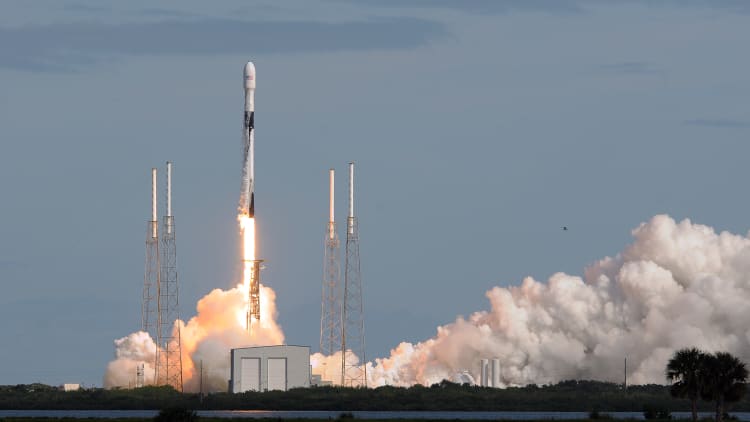SpaceX took a first step toward offering its Starlink internet service in Australia, after the country's telecommunications regulator gave initial approval for the satellite network.
The Australian Communications and Media Authority (ACMA) added SpaceX Services to its "Foreign Space Objects Determination" list, according to government filings on Jan. 24. The amendment means that SpaceX will be able to apply for key licenses to communicate between its satellites and "earth stations" on the ground in Australia.
It's an important foot in the door for SpaceX, as the company must have regulatory approvals in place for countries it wants to connect to Starlink's broadband services. Two years ago SpaceX got approval from the Federal Communications Commission to provide Starlink services in the U.S.

Starlink is SpaceX's plan to build an interconnected network of about 12,000 small satellites, to provide high-speed internet to anywhere in the world.
It's a project SpaceX has steadily been raising capital for, as President and COO Gwynne Shotwell said two years ago "it will cost the company about $10 billion or more" to build the Starlink network. Last year SpaceX raised over $1.3 billion in new funding, with recent investor Ontario Teachers noting the future growth potential of Starlink.
If SpaceX can overcome the technological challenges of building and distributing this service, the company is optimistic on its potential demand and revenue. SpaceX CEO Elon Musk in May estimated that Starlink could bring in revenue of $30 billion a year – or about 10 times the highest annual revenue it expects from its core rocket business.
Steps remaining before Starlink serves Australia
SpaceX is early in its launch campaign for Starlink, with the company having launched 240 Starlink broadband satellites so far – with the first 60 of those being considered demonstration versions of the satellites. SpaceX plans to launch two batches of 60 Starlink satellites per month, aiming to begin offering services later this year once at least 360 satellites are in orbit. After that, SpaceX will need 1,440 Starlink satellites to provide coverage to any place in the world.
If SpaceX gets the approvals it needs, Australia may be one of the first places outside of the U.S. to join the network. SpaceX's Matt Botwin, the company's director of global satellite government affairs, wrote in a letter to ACMA outlining just how all-encompassing Starlink's market would be.
"Offer satellite-based broadband and communications services for residential, commercial, institutional, governmental, and professional users throughout Australia," Botwin wrote.
But SpaceX still may face a fight in Australia, as the country's telecommunications giant Foxtel wrote a letter of protest to the ACMA regarding Starlink. The TV conglomerate said that Starlink's services would interfere with Foxtel's current satellite service.
"This is a crucial link in our product delivery chain, and the consequences of interference, outages or degradations of margin are at the highest end of the spectrum of consequences for a business such as Foxtel," the company wrote. "We hold very high levels of concern regarding the interference potential."
Foxtel is a joint venture that is majority-owned by News Corp Australia – a subsidiary of Rupert Murdoch's News Corp.
Australia also added satellite operators Kepler Communications and Swarm Technologies to its "Foreign Space Objects Determination" list in the amendment.


